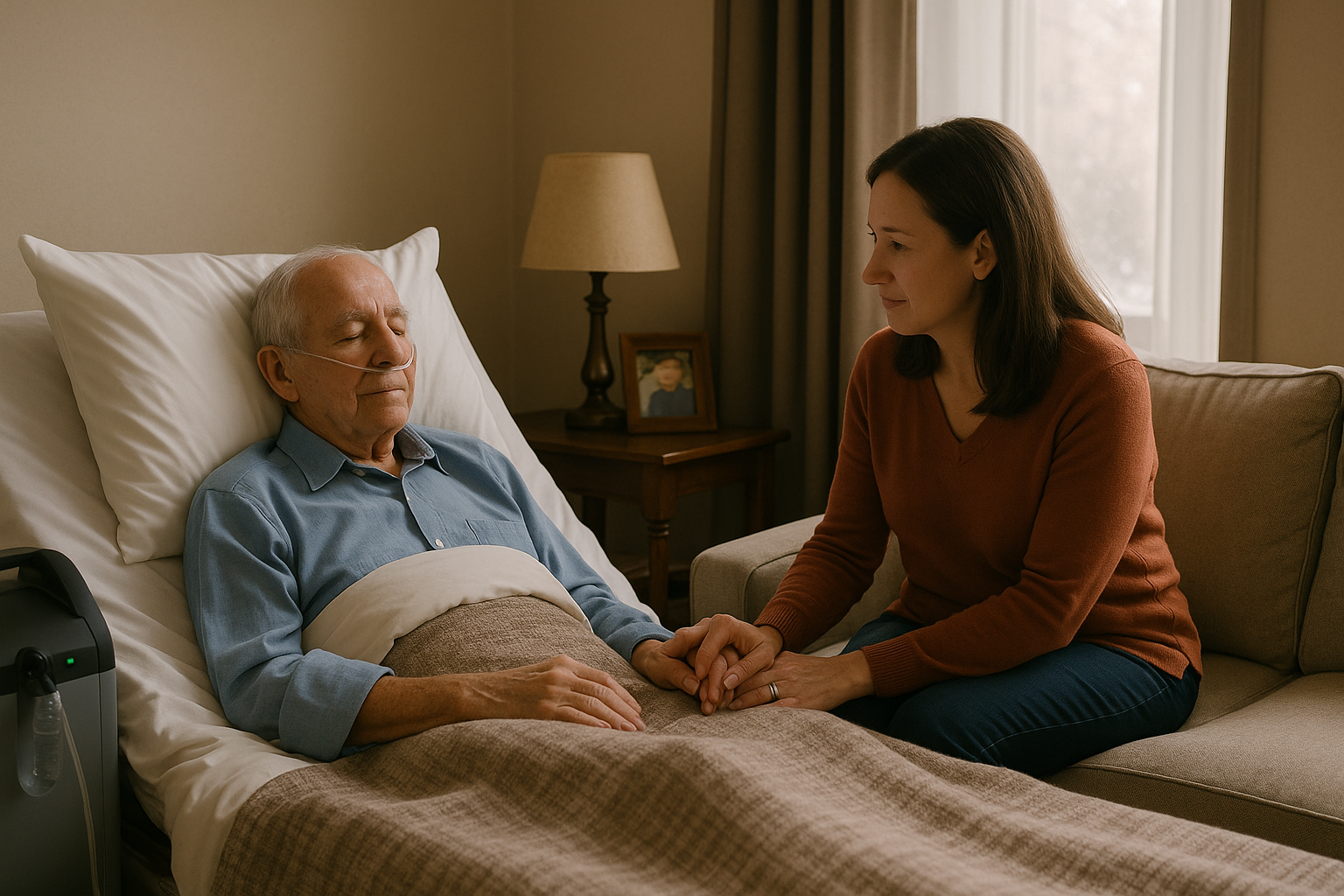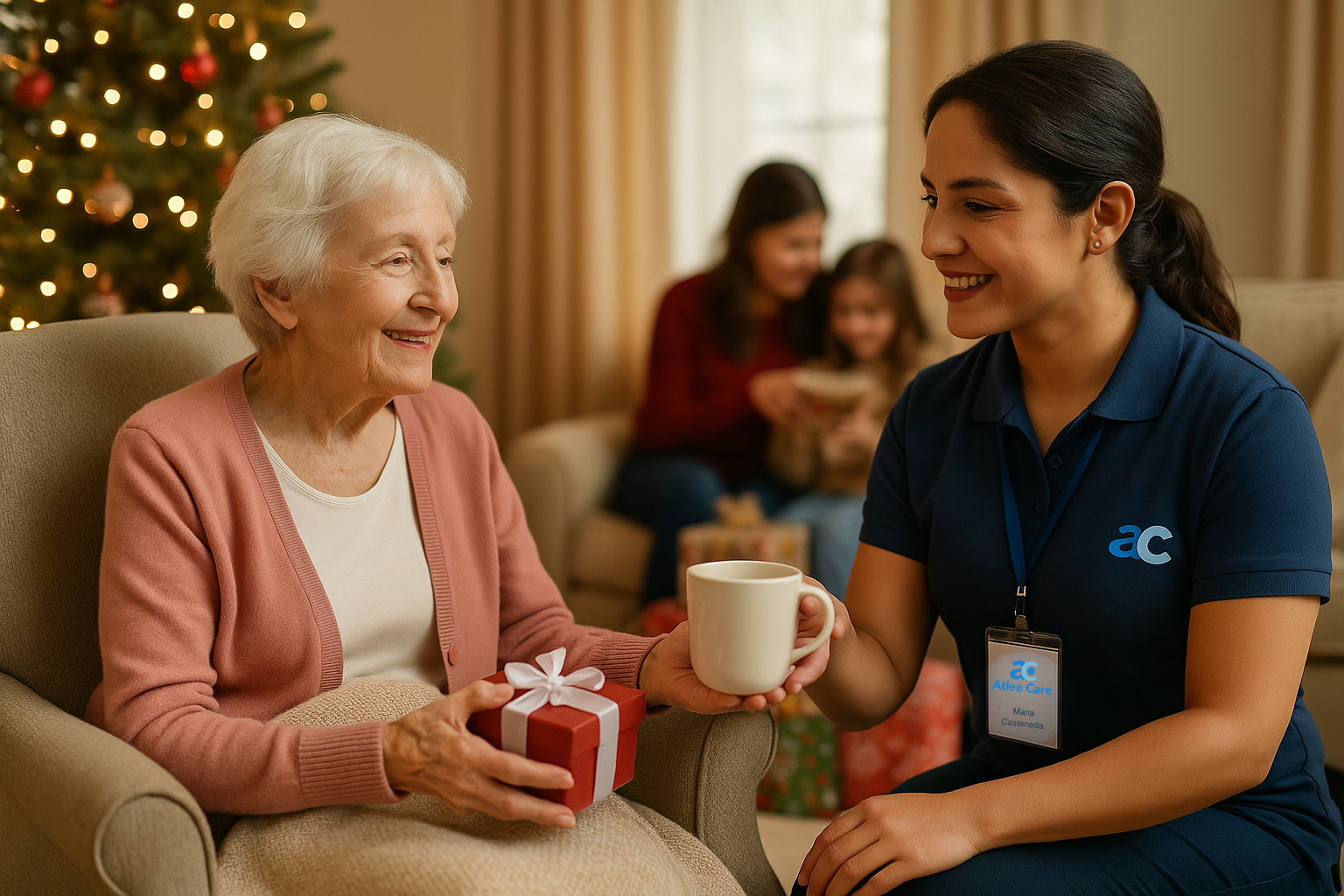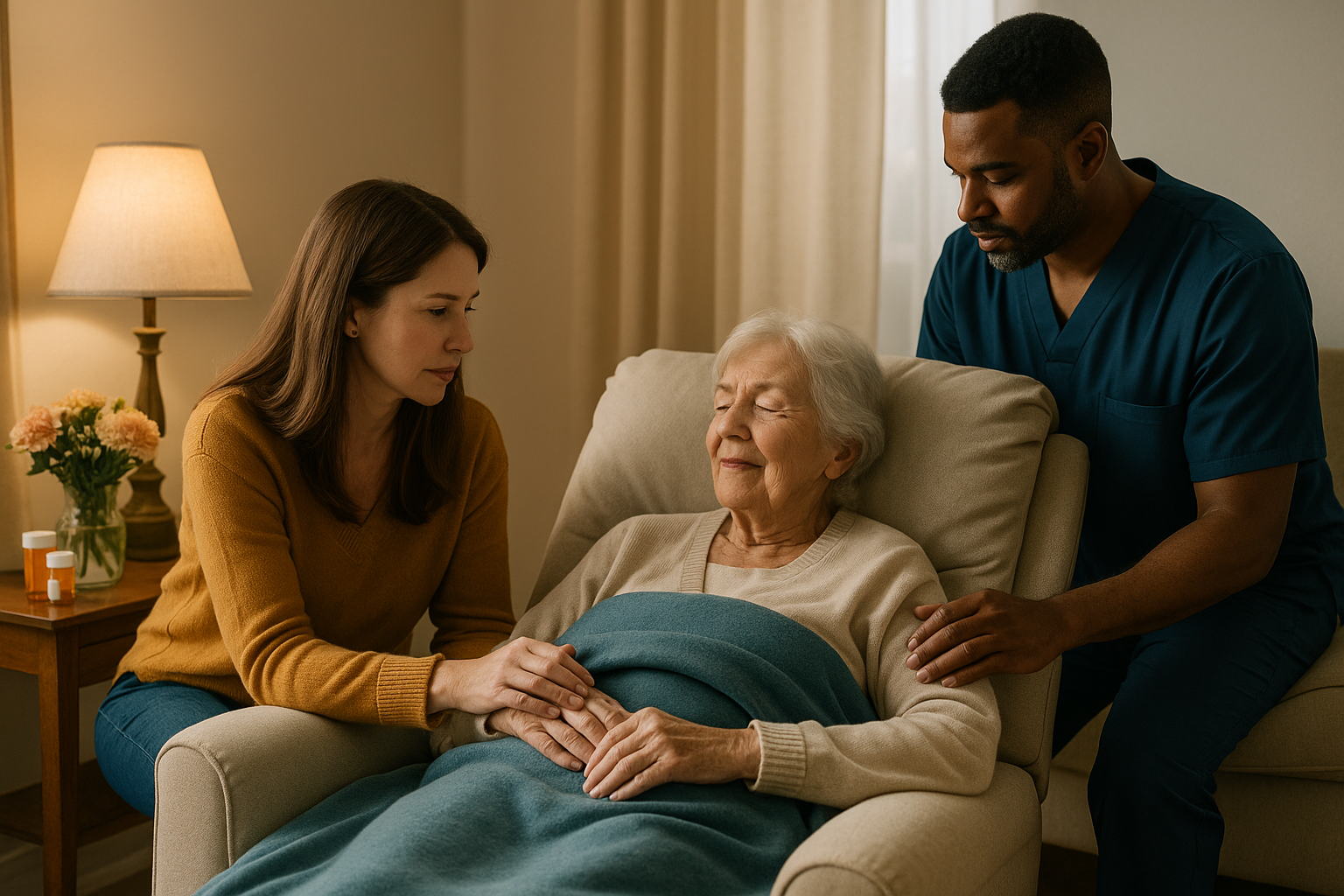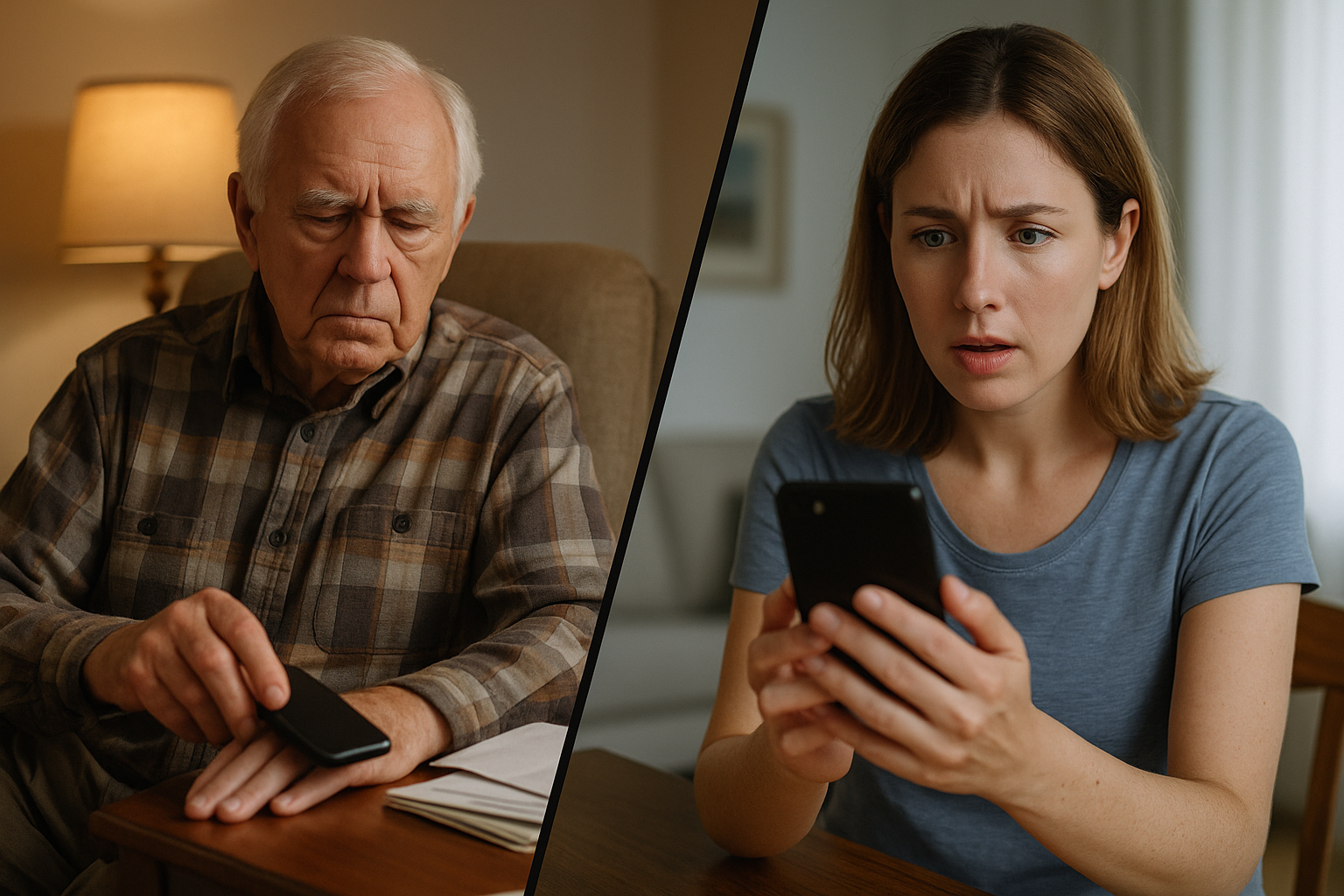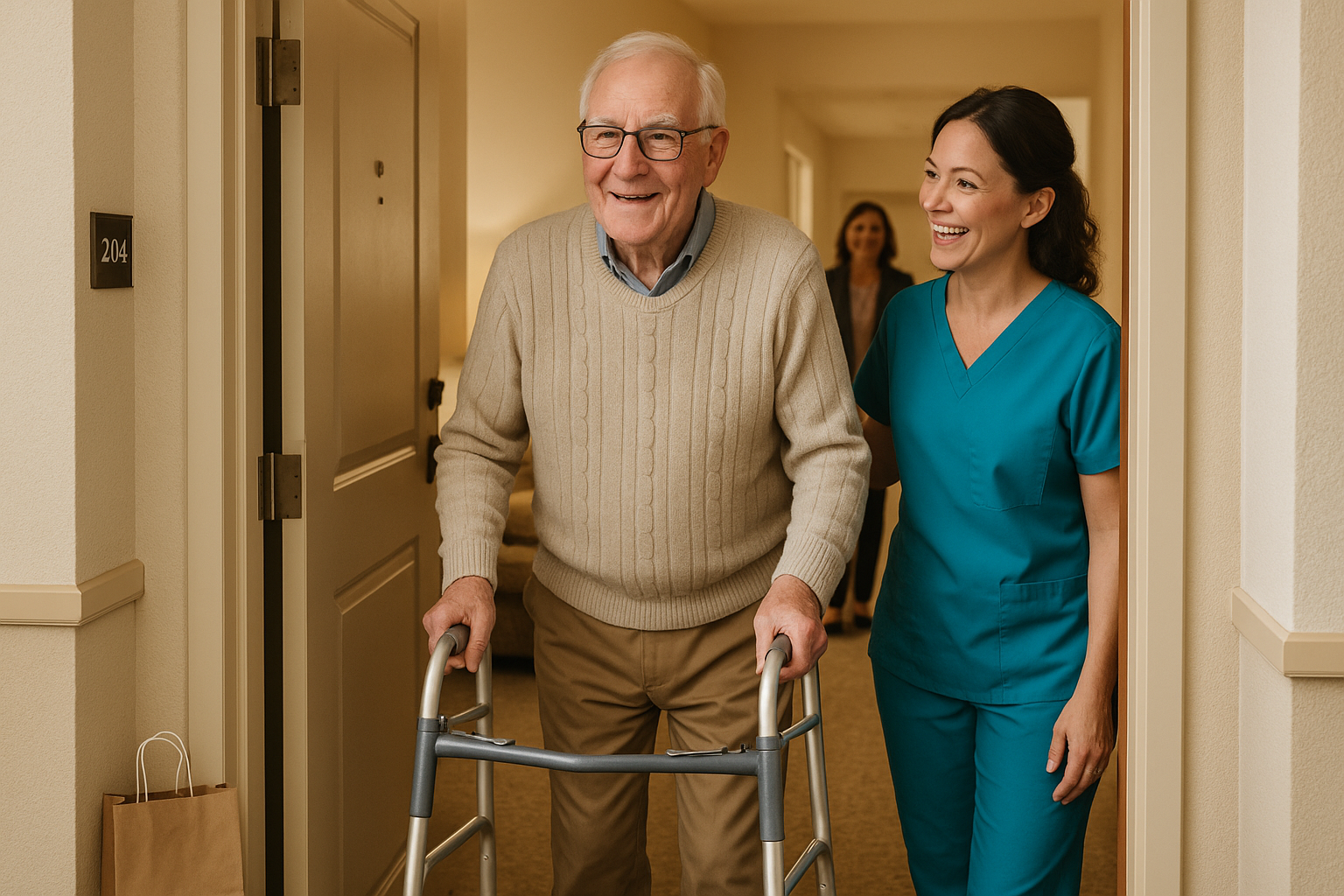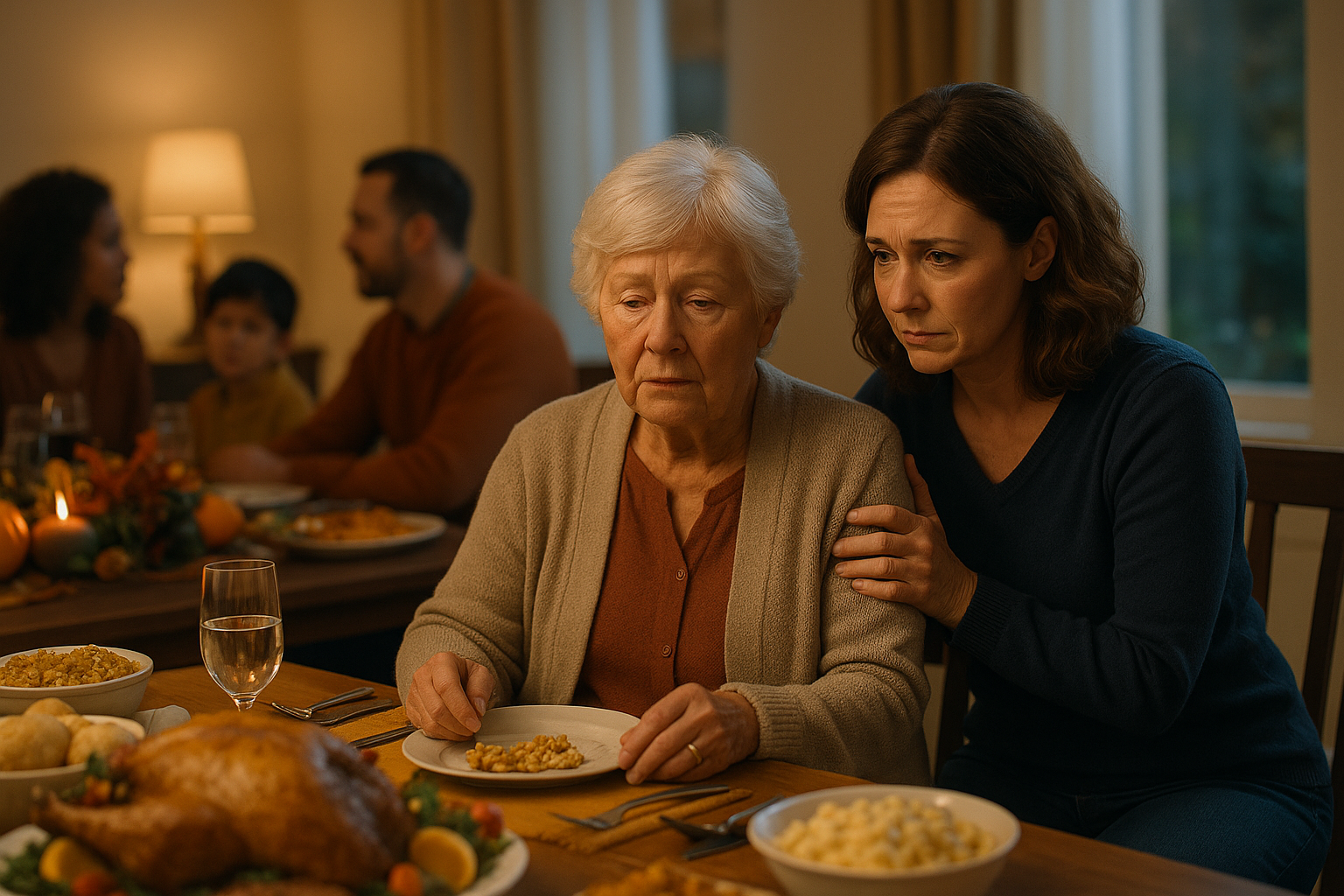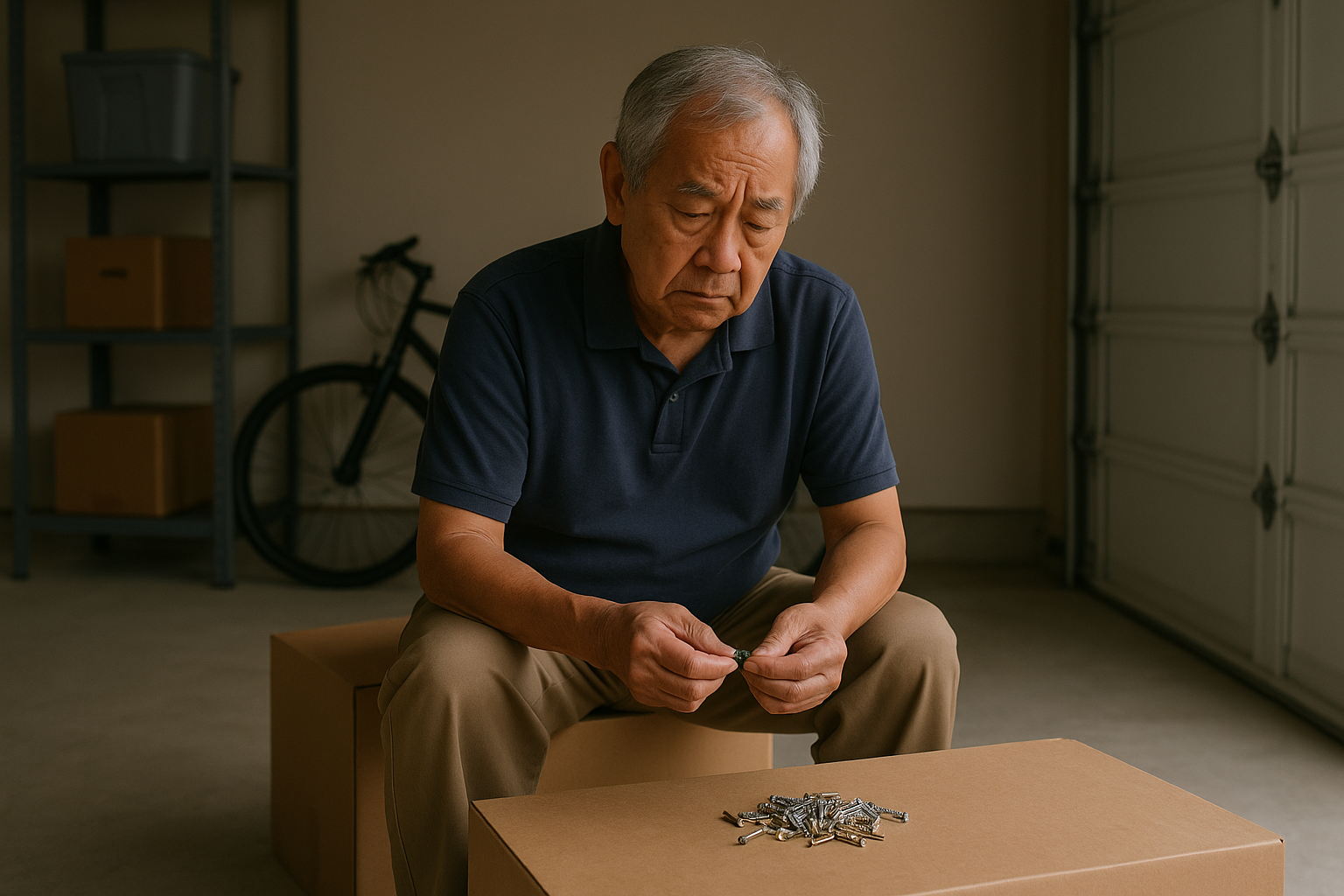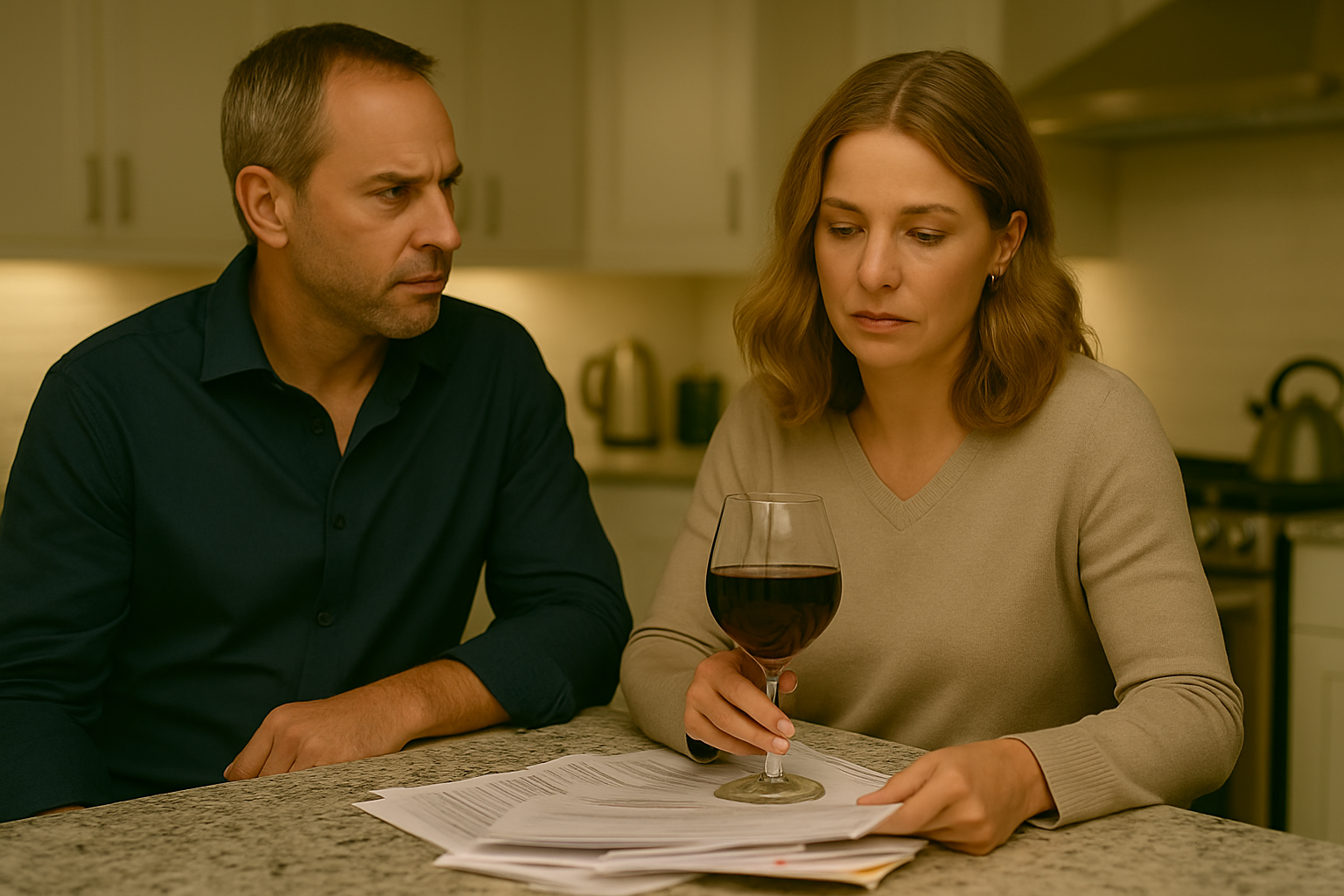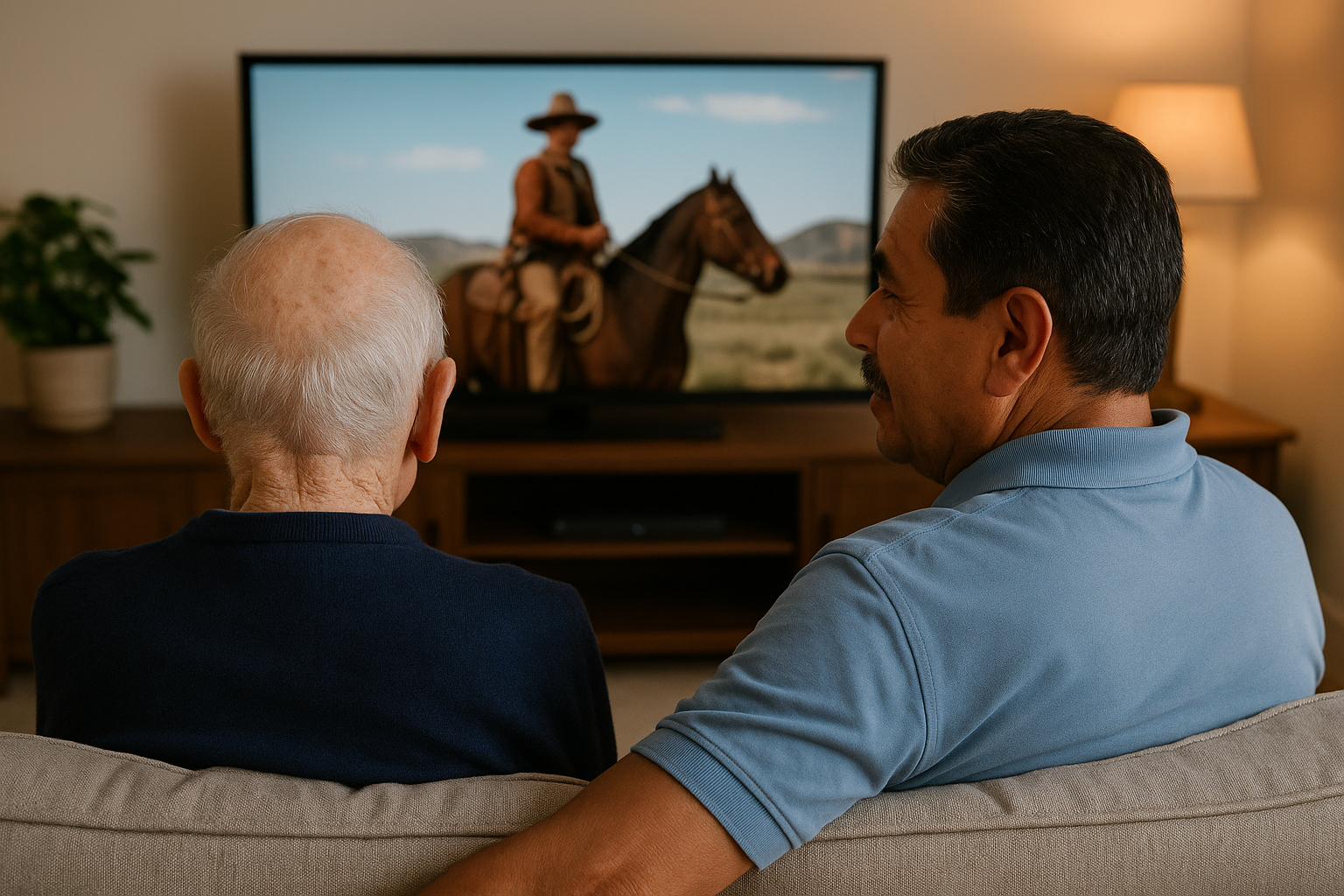When Dad Came Home
How the Atlee and Hospice Teams Worked Together to Give Dad Dignity at Home
The phone call came on a Thursday afternoon in March.
"Mr. Martinez? This is Dr. Williams at Presbyterian/St. Joseph. We need to talk about your father's care options."
David Martinez had been expecting this call, but hearing it still felt like a punch to the chest. His 92-year-old father Charles wasn't getting better. It was time to talk about hospice.
"The good news is he can come home," Dr. Williams said. "You have a great team with Hospice of the Foothills."
What happened next changed how David's family experienced their father's final weeks—and it started with understanding when hospice care needs additional support.
Coming Home: The Reality Between Visits
Charles came home to Highlands Ranch with a hospital bed, oxygen concentrator, and the promise of excellent hospice support. The intake nurse Sarah was wonderful, explaining that Charles would receive nursing visits twice a week plus a CNA three times a week for personal care.
"Sarah made us feel like we weren't alone," David told me. "The hospice team was clearly experienced and caring."
But between visits, it was just the family. Charles needed help with everything: eating, positioning in bed, staying comfortable. David's sister Maria drove down from Fort Collins. His brother Tom rearranged his work schedule. Everyone wanted to help, but no one knew how.
"We were all trying so hard to be caregivers that we forgot how to be his children," Maria said.
When Sarah said what we were all thinking
Two weeks into hospice care, Sarah, the hospice nurse, sat down with the family after her regular visit.
"Your father is getting good medical care from our team," she said gently. "But I can see that he needs more day-to-day support than we can provide, and you're all exhausted."
Sarah explained the reality: "We monitor his medical needs, but we can't be here 24/7. Charles needs more hands-on assistance, and you need to be his family, not his round-the-clock caregivers."
She recommended Atlee Home Care. "We work closely with them on many cases. They understand hospice care and work seamlessly with our medical team."
The Cost Conversation No One Wants to Have
When David called us the next morning, his first question was about cost.
"How much for round-the-clock care?" he asked.
"Thirty-five dollars an hour," I told him. "For twenty-four hour care, that's about eight hundred forty dollars a day."
Long silence.
"I can't afford that long-term," David said finally.
"David," I said gently, "you're not planning for a year. Your father is on hospice care. This isn't about long-term affordability. This is about making his final weeks comfortable and dignified while working alongside his hospice team."
The math that changed their perspective:
- David's lost income from missed work: ~$500/day
- Maria's travel and hotel costs: ~$150/day
- Tom's emergency childcare: ~$200/day
- Time in hospice care: not indefinite
- Total estimated investment: manageable for a defined period
"When we looked at it that way, it wasn't about affording eight hundred dollars a day forever," David explained. "It was about affording the right care for Dad's final journey."
Elena and the Atlee Team: Working Alongside Hospice
We matched the Martinez family with Elena and our experienced end-of-life care team. Elena would be the primary daytime caregiver, supported by Rosa for nights and additional team members as needed—all caregivers experienced with Hospice of the Foothills.
"The first thing I noticed was how well Elena and the team worked with Sarah, the hospice nurse," David said. "They knew exactly what to share during Sarah's visits."
The Atlee team's role alongside hospice:
- Continuous personal care between medical visits
- Communicating consistently with the hospice team
- Help the family with any household management needs
- Handling daily tasks so the family could focus on connection
What changed immediately:
- David could share stories instead of worrying about care tasks
- Maria could hold Dad's hand instead of figuring out routines
- Tom's teenagers could have normal conversations with Grandpa
"The Atlee team handled daily care, the hospice team handled medical oversight," David said. "We got to be his family again."
The Partnership That Made the Difference
What made Charles's care so effective was the seamless collaboration.
Weekly coordination:
- Sarah (hospice nurse) visited twice weekly, reviewing conditions with the Atlee team present
- CNA visits provided medical assessment with our caregivers ensuring continuity
- The team communicated daily changes and concerns consistently
"Having the Atlee team there meant the hospice team had eyes on Dad every day," Maria explained. "They could adjust his care based on real-time information."
When Needs Increased
After two weeks, Charles's condition declined. Sarah noticed during her visit: "Charles is entering a new phase. His needs are increasing, especially at night. You should consider 24-hour care."
We expanded the team coverage to include Rosa for night shifts, along with additional weekend support—all caregivers experienced with Hospice of the Foothills protocols.
The 24-hour team routine:
- Elena (Primary days): Personal care, meals, companionship, family coordination
- Rosa (Nights): Comfort care, medication management, peaceful sleep support
- Weekend team: Consistent care coverage with seamless communication
- Hospice team: Regular visits with caregivers providing complete updates
"Having round-the-clock team coverage meant Dad slept better, and so did we," David said. "When Sarah visited, she got a complete picture of Dad's 24-hour needs."
The Final Days: When Expert Coordination Mattered Most
As Charles's condition declined significantly, both teams stepped up their support.
The hospice team responded: Increased visits, adjusted medications, prepared the family.
The Atlee team provided: Continuous comfort care, real-time communication with hospice, emotional support for the family, implementation of comfort protocols around the clock.
Charles passed peacefully at home on a Tuesday morning, surrounded by his family.
"Elena was there when Dad took his last breath," David said. "Sarah had prepared us for what to expect, and Elena helped us understand what was happening."
Six Months Later: Looking Back
"Dad told me he was proud of the father I'd become," David said. "Those conversations happened because Elena and the team handled everything else while working seamlessly with the hospice team."
The investment:
- Total cost: $20,160 for 24 days of 24-hour care
- Hospice services: Covered by Medicare
- Alternative: Family breakdown, nursing facility ($8,000+/week)
What they gained:
- Charles died at home with dignity
- Expert medical care combined with continuous personal support
- Final weeks about connection, not crisis management
- No regrets about care decisions or missed opportunities
"Sarah from hospice told us the Atlee team made her job better too," Maria said. "She had complete information about Dad between visits."
The Reality of Hospice Partnership
If your family is facing this situation, here's what the Martinez family wants you to know:
Hospice care is excellent—with limitations. Your hospice team provides expert medical oversight, but they can't be there around the clock. Experienced caregivers fill that crucial gap.
The teams work together beautifully. Caregivers who regularly work with hospice agencies understand protocols and enhance the medical team's effectiveness.
It's about the time, not the money. This isn't long-term care planning—it's intensive support during a defined final chapter.
Professional care preserves family relationships. When trained caregivers handle daily tasks while hospice manages medical needs, families can focus on love and memory-making.
When Additional Support Makes Sense
Your hospice team may recommend caregiver support when:
- Your loved one needs more assistance than hospice visits provide
- Family members are overwhelmed by daily care tasks
- Continuous monitoring would improve comfort and safety
- You want to focus on quality time rather than care management
The Atlee Difference in Hospice Partnership
We work closely with Denver area hospice agencies including Hospice of the Foothills, Denver Hospice, Halcyon Hospice, and Vitas Healthcare.
Our approach:
- Hospice-experienced caregivers who understand end-of-life protocols
- Seamless coordination with medical teams
- Flexible scheduling from 12-hour to 24-hour care
- Family-centered support during life's most difficult transition
The Gift of Complete Care
Charles Martinez spent his final weeks receiving expert hospice medical care and continuous personal support.
His children were able to be children—sharing stories, expressing love, creating final memories. The hospice team provided medical expertise. Elena and Rosa provided daily comfort. Together, they created an environment where Charles could focus on his family and his family could focus on him.
"Dad didn't just come home to die," David said. "He came home to live his final weeks fully, with professionals who worked together to keep him comfortable and our family together."
If Your Family Is Facing This Journey
If your hospice team has mentioned that additional care might help, you're not alone. Many families find that combining hospice medical expertise with personal care creates the optimal environment for comfort, dignity, and family connection.
The partnership is expert. The cost is temporary. The memories are forever.
📞 Call Atlee Home Care: (720) 740-0380
🌐 Learn more: www.atleecare.com
When facing life's final chapter, everyone deserves expert medical care and loving personal support. We're honored to work alongside hospice teams to provide both.
